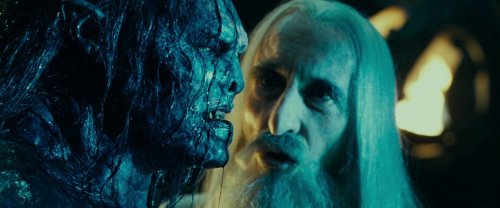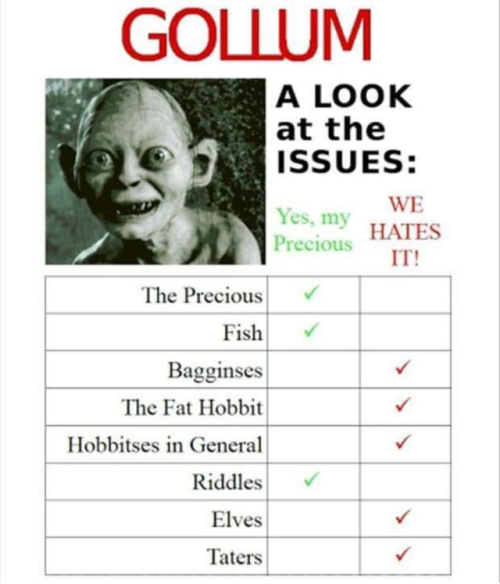#the one ring
“Frodo undertook his quest out of love–to save the world he knew from disaster at his own expense, if he could; and also in complete humility, acknowledging that he was wholly inadequate to the task. His real contract was only to do what he could, to try to find a way, and to go as far on the road as his strength of mind and body allowed. He did that. I do not myself see that the breaking of his mind and will under demonic pressure after torment was any more a moral failure than the breaking of his body would have been–say by being strangled by Gollum, or crushed by a falling rock.
That appears to have been the judgement of Gandalf and Aragorn and of all who learned the full story of his journey. Certainly nothing would be concealed by Frodo! But what Frodo himself felt about the events is quite another matter.
He appears at first to have had no sense of guilt; he was restored to sanity and peace. But then he thought that he had given his life in sacrifice: he expected to die very soon. But he did not, and one can observe the disquiet growing in him. Arwen was the first to observe the signs, and gave him her jewel for comfort, and thought of a way of healing him. Slowly he fades ‘out of the picture’, saying and doing less and less. I think it is clear on reflection to an attentive reader that when his dark times came upon him and he was conscious of being 'wounded by knife sting and tooth and a long burden’ it was not only nightmare memories of past horrors that afflicted him, but also unreasoning self-reproach: he saw himself and all that he [had] done as a broken failure. 'Though I may come to the Shire, it will not seem the same, for I shall not be the same.’ That was actually a temptation out of the Dark, a last flicker of pride: desire to have returned as a 'hero’, not content with being a mere instrument of good. And it was mixed with another temptation, blacker and yet (in a sense) more merited, for however that may be explained, he had not in fact cast away the Ring by a voluntary act: he was tempted to regret its destruction, and still to desire it. 'It is gone for ever, and now all is dark and empty’, he said as he wakened from his sickness in 1420.
'Alas! there are some wounds that cannot be wholly cured,’ said Gandalf–not in Middle-earth. Frodo was sent or allowed to pass over the Sea to heal him–if that could be done, before he died. He would have eventually to 'pass away’: no mortal could, or can, abide for ever on earth, or within Time. So he went to both a purgatory and to a reward, for a while: a period of reflection and peace and a gaining of a truer understanding of his position in littleness and in greatness, spent still in Time amid the natural beauty of 'Arda Unmarred’, the Earth unspoiled by evil.”
—J.R.R. Tolkien, The Letters of J.R.R. Tolkien, “246” (Part of his reply to a reader’s comments on Frodo’s failure to surrender the Ring in the Cracks of Doom)
Post link
“In any case a confrontation of Frodo and Sauron would soon have taken place, if the Ring was intact. Its result was inevitable. Frodo would have been utterly overthrown: crushed to dust, or preserved in torment as a gibbering slave. Sauron would not have feared the Ring! It was his own and under his will. Even from afar he had an effect upon it, to make it work for its return to himself. In his actual presence none but very few of equal stature could have hoped to withhold it from him. Of ‘mortals’ no one, not even Aragorn. In the contest with the Palantír Aragorn was the rightful owner. Also the contest took place at a distance, and in a tale which allows the incarnation of great spirits in a physical and destructible form their power must be far greater when actually physically present. Sauron should be thought of as very terrible. The form that he took was that of a man of more than human stature, but not gigantic. In his earlier incarnation he was able to veil his power (as Gandalf did) and could appear as a commanding figure of great strength of body and supremely royal demeanor and countenance.
Of the others only Gandalf might be expected to master him—being an emissary of the Powers and a creature of the same order, an immortal spirit taking a visible physical form. … [However, c]onfrontation of Sauron alone, unaided, self to self was not contemplated. One can imagine a scene in which Gandalf, say, was placed in such a position. It would be a delicate balance. On one side the true allegiance of the Ring to Sauron; on the other the superior strength because Sauron was not actually in possession, and perhaps also because he was weakened by long corruption and expenditure of will in dominating inferiors. If Gandalf proved the victor, the result would have been for Sauron the same as the destruction of the Ring; for him it would have been destroyed, taken from him for ever. But the Ring and all its works would have endured. It would have been the master in the end.“
—J.R.R. Tolkien, The Letters of J.R.R. Tolkien, ”246” (What would have happened in a confrontation with Sauron if Frodo or Gandalf had taken the Ring)
Post link
[Sauron] rules a growing empire from the great dark tower of Barad-dûr in Mordor, near to the Mountain of Fire, wielding the One Ring.
But to achieve this he had been obliged to let a great part of his own inherent power (a frequent and very significant motive in myth and fairy-story) pass into the One Ring. While he wore it, his power on earth was actually enhanced. But even if he did not wear it, that power existed and was in ‘rapport’ with himself: he was not 'diminished’. Unless some other seized it and became possessed of it. If that happened, the new possessor could (if sufficiently strong and heroic by nature) challenge Sauron, become master of all that he had learned or done since the making of the One Ring, and so overthrow him and usurp his place. This was the essential weakness he had introduced into his situation in his effort (largely unsuccessful) to enslave the Elves, and in his desire to establish a control over the minds and wills of his servants. There was another weakness: if the One Ring was actually unmade, annihilated, then its power would be dissolved, Sauron’s own being would be diminished to vanishing point, and he would be reduced to a shadow, a mere memory of malicious will. But that he never contemplated nor feared. The Ring was unbreakable by any smithcraft less than his own. It was indissoluble in any fire, save the undying subterranean fire where it was made–and that was unapproachable, in Mordor. Also so great was the Ring’s power of lust, that anyone who used it became mastered by it; it was beyond the strength of any will (even his own) to injure it, cast it away, or neglect it. So he thought. It was in any case on his finger.
–J.R.R. Tolkien, The Letters of J.R.R. Tolkien, #131
Post link
No one answered. The noon-bell rang. Still no one spoke. Frodo glanced at all the faces, but they were not turned to him. All the Council sat with downcast eyes, as if in deep thought. A great dread fell on him, as if he was awaiting the pronouncement of some doom that he had long foreseen and vainly hoped might after all never be spoken. An overwhelming longing to rest and remain at peace by Bilbo’s side in Rivendell filled all his heart. At last with an effort he spoke, and wondered to hear his own words, as if some other will was using his small voice.
‘I will take the Ring,’ he said, ‘though I do not know the way.’
Elrond raised his eyes and looked at him, and Frodo felt his heart pierced by the sudden keenness of the glance. ‘If I understand aright all that I have heard,’ he said, ‘I think that this task is appointed for you, Frodo; and that if you do not find a way, no one will. This is the hour of the Shire-folk, when they arise from their quiet fields to shake the towers and counsels of the Great. Who of all the Wise could have foreseen it? Or, if they are wise, why should they expect to know it, until the hour has struck?
‘But it is a heavy burden. So heavy that none could lay it on another. I do not lay it on you. But if you take it freely, I will say that your choice is right; and though all the mighty elf-friends of old, Hador, and Húrin, and Túrin, and Beren himself were assembled together your seat should be among them.’
—J.R.R. Tolkien, The Lord of the Rings: The Fellowship of the Ring, “The Council of Elrond"
Post link
As Sam stood there, even though the Ring was not on him but hanging by its chain about his neck, he felt himself enlarged, as if he were robed in a huge distorted shadow of himself, a vast and ominous threat halted upon the walls of Mordor. He felt that he had from now on only two choices: to forbear the Ring, though it would torment him; or to claim it, and challenge the Power that sat in its dark hold beyond the valley of shadows. Already the Ring tempted him, gnawing at his will and reason. Wild fantasies arose in his mind; and he saw Samwise the Strong, Hero of the Age, striding with a flaming sword across the darkened land, and armies flocking to his call as he marched to the overthrow of Barad-dûr. And then all the clouds rolled away, and the white sun shone, and at his command the vale of Gorgoroth became a garden of flowers and trees and brought forth fruit. He had only to put on the Ring and claim it for his own, and all this could be.
In that hour of trial it was the love of his master that helped most to hold him firm; but also deep down in him lived still unconquered his plain hobbit-sense: he knew in the core of his heart that he was not large enough to bear such a burden, even if such visions were not a mere cheat to betray him. The one small garden of a free gardener was all his need and due, not a garden swollen to a realm; his own hands to use, not the hands of others to command.
–J.R.R. Tolkien The Lord of the Rings: The Return of the King, “The Tower of Cirith Ungol”
You can’t miss this!
Dylan Sprouse from The Suite Life of Zack & Cody will talking hobbits with the TheOneRing.net today at 5PM (PT)/ 8PM (ET)!
http://www.stickam.com/theoneringnet
Post link
Nicolas Cage as Gollum in the Return of the Cage
There [the Ring] dwelt, until even in the year of the assault upon Dol Guldur it was found again, by a wayfarer, fleeing into the depths of the earth from the pursuit of the Orcs… ~ The Silmarillion, Of the Rings of Power
Post link
…and by its finder [the Ring] was brought beyond search into dark hiding under the roots of the mountains. ~ The Silmarillion, Of the Rings of Power (Art: “Precious Dreams” by JakeMurray on deviantART)
Post link
For [the One Ring] had been taken from Anduin long ere they sought for it, being found by one of the small fisher-folk that dwelt by the River, ere the Kings failed in Gondor… ~ The Silmarillion, Of the Rings of Power (Art: “Smeagol and the Ring of Power” by drkay85 on deviantART)
Post link
Then in the midst of gathering fear and the rumour of war the foreboding of Elrond was proved true, and the One Ring was indeed found again, by a chance more strange than even Mithrandir had foreseen; and it was hidden from Curunír and from Sauron. ~ The Silmarillion, Of the Rings of Power (Art: “Smeagol und Deagol” by WilliWeissfuss on deviantART)
Post link
But [Curunír] spoke of none of this to the Council, hoping still that he might be the first to hear news of the Ring. ~ The Silmarillion, Of the Rings of Power (Art: “Of Gandalf and Saruman” by Mieronna on DeviantArt)
Post link
Then [Curunír] perceived that Sauron also had learned of the manner of Isildur’s end, and he grew afraid and withdrew to Isengard and fortified it; and ever he probed deeper into the lore of the Rings of Power and the art of their forging. ~ The Silmarillion, Of the Rings of Power
Post link
But Sauron had many ears, and soon he heard rumour of the One Ring, which above all things he desired, and he sent forth the Nazgûl to take it. ~ The Silmarillion, Of the Rings of Power
Post link
Therefore with the help of the Dúnedain of the North Mithrandir set a watch upon the land of the Periannath and bided his time. ~ The Silmarillion, Of the Rings of Power (Art: “Hobbits and Rangers” by sweethappily on DeviantArt)
Post link
…yet [Mithrandir] was dismayed and in doubt. For too great was the evil power of this thing for any of the Wise to wield, unless like Curunír he wished himself to become a tyrant and a dark lord in his turn; but neither could it be concealed from Sauron for ever, nor could it be unmade by the craft of the Elves. ~ The Silmarillion, Of the Rings of Power
Post link
Now by fortune and his vigilance Mithrandir first learned of the Ring, ere Sauron had news of it… ~ The Silmarillion, Of the Rings of Power
Post link
And ere that day [the Halflings, Hobbits] had been held of small account by Elves and by Men, and neither Sauron nor any of the Wise save Mithrandir had in all their counsels given thought to them. ~ The Silmarillion, Of the Rings of Power
Post link
On this day in T.A. 3019, Saruman dispatches his ruthless Uruk-hai warriors to track down the Fellowship of the Ring in a bid to obtain the One Ring for himself.
Post link

“ ‘til now, I always got by on my own.”
-Sauron

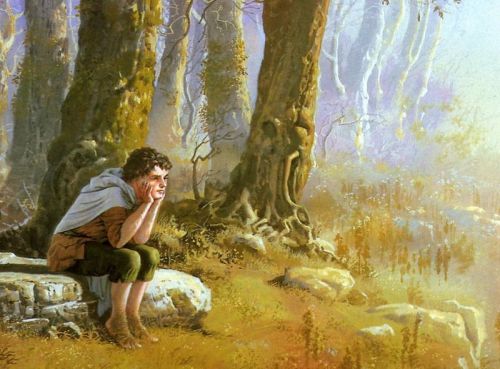

![[Sauron] rules a growing empire from the great dark tower of Barad-dûr in Mordor, near to the Mounta [Sauron] rules a growing empire from the great dark tower of Barad-dûr in Mordor, near to the Mounta](https://64.media.tumblr.com/eb3f74432452155a3be2af149f78de1d/tumblr_mpkfwsNV7T1rtwlb5o1_500.jpg)


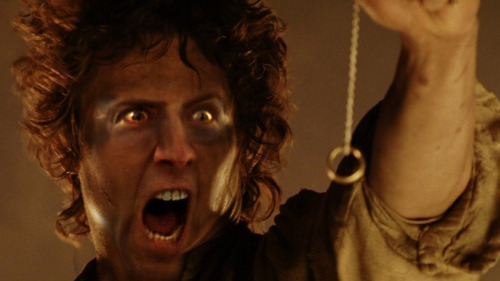
![There [the Ring] dwelt, until even in the year of the assault upon Dol Guldur it was found again, by There [the Ring] dwelt, until even in the year of the assault upon Dol Guldur it was found again, by](https://64.media.tumblr.com/50d4fa4af77f53ae9ecb06bce1a452db/8fd382befd22f06f-4a/s500x750/636e98c03eb048afc2e7b97853c0cf3e24d88ec3.jpg)
![…and by its finder [the Ring] was brought beyond search into dark hiding under the roots of the moun …and by its finder [the Ring] was brought beyond search into dark hiding under the roots of the moun](https://64.media.tumblr.com/7d6227ab05fdf88b2a7fa5bb67ed115d/0d1a5e9dddf9ff06-79/s500x750/7f9c351fb5479913bf8a2133521d33c6b8ce6a93.jpg)
![For [the One Ring] had been taken from Anduin long ere they sought for it, being found by one of the For [the One Ring] had been taken from Anduin long ere they sought for it, being found by one of the](https://64.media.tumblr.com/9c216369107eb9b4dc23f42dd9702908/b1c1b4ad3952e6be-f9/s500x750/31170bc18e67aa7c667bf5dbd06cb6d5b4c75dff.jpg)
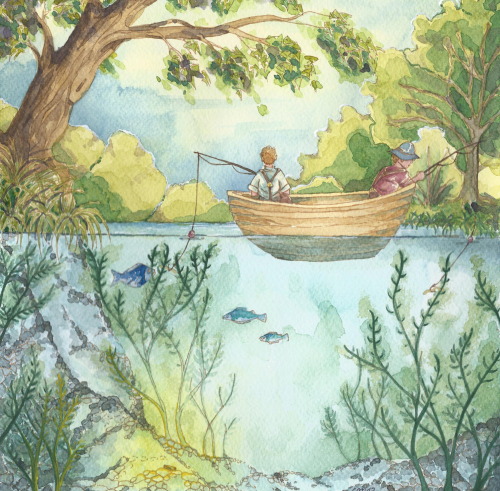
![But [Curunír] spoke of none of this to the Council, hoping still that he might be the first to hear But [Curunír] spoke of none of this to the Council, hoping still that he might be the first to hear](https://64.media.tumblr.com/9d404cabc0a80cf8e375c45205f9c09f/d4d467c525584d92-45/s500x750/81399f551f139fca097ea9b83bffb10bb1fe1ce6.jpg)
![Then [Curunír] perceived that Sauron also had learned of the manner of Isildur’s end, and he g Then [Curunír] perceived that Sauron also had learned of the manner of Isildur’s end, and he g](https://64.media.tumblr.com/d04e93ffb43f74d68ad92395c290cb70/c97af23b0eb866c6-99/s500x750/ad07ecb7f9d260fb5f67acff65c3baafeddbc07b.jpg)
![[Curunír] set a watch upon the Gladden Fields; but soon he discovered that the servants of Dol Guldu [Curunír] set a watch upon the Gladden Fields; but soon he discovered that the servants of Dol Guldu](https://64.media.tumblr.com/191f5aae32b70df055e2d293686f49a4/245721d30d7905f9-ff/s500x750/d71e54d42198e6bf43bdad8cef2d0e6bf005f6ff.jpg)


![…yet [Mithrandir] was dismayed and in doubt. For too great was the evil power of this thing for any …yet [Mithrandir] was dismayed and in doubt. For too great was the evil power of this thing for any](https://64.media.tumblr.com/5b04634a26b9ac971de0231926c79130/7241648c3ffce7e2-e1/s500x750/ba584bd9fa1f728a59af4e8a39ed232a4508d213.jpg)
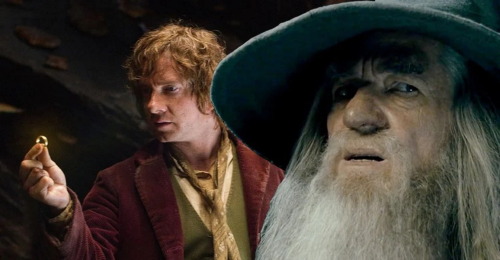
![And ere that day [the Halflings, Hobbits] had been held of small account by Elves and by Men, and ne And ere that day [the Halflings, Hobbits] had been held of small account by Elves and by Men, and ne](https://64.media.tumblr.com/98e9e8c64586ae17204e819a6c65bd4b/1438d1aae6efc645-d4/s500x750/3f2f9a2e974bc135837bcaa3bbda3a1728a66ea1.jpg)
![…and [the Ring] passed into a far distant country, even to the land of the Periannath, the Little Pe …and [the Ring] passed into a far distant country, even to the land of the Periannath, the Little Pe](https://64.media.tumblr.com/544b88a8877ce4904bbe5543af3b317d/4e28c006f054558e-a1/s500x750/c8f774512e12de7e8439404290388f0dbee02d05.jpg)

